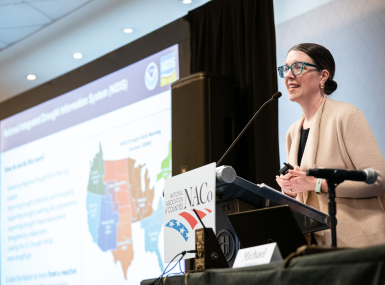House Passes Amendment Authorizing $4.5 Billion to Replace Lead Drinking Water Pipes
Upcoming Events
Related News

Key Takeaways
On July 1, 2020, the U.S. House of Representatives passed H.R. 2, the INVEST in America Act. As part of the $1.5 trillion infrastructure package, the House passed an amendment to authorize $4.5 billion annually for fiscal years 2021 through 2025 to fund the replacement of lead drinking water pipes. The amendment was offered by Reps. Rashida Tlaib (D-Mich.), Dan Kildee (D-Mich.), Elissa Slotkin (D-Mich.), David Cicilline (R.I.) and Gwen Moore (Wis.).
The amendment directs the Administrator of the U.S. Environmental Protection Agency (EPA) to make grants available to eligible entities for comprehensive lead reduction projects that pay to fully replace all lead service lines served by the eligible entity. The grants are irrespective of the ownership of the service line and do not require a contribution to the cost of replacement of any portion of the service line by any individual homeowner. The administrator shall give priority to eligible entities serving disadvantaged communities, environmental justice communities with significant representation of communities of color, low-income communities, or Tribal and indigenous communities that experience, or are at risk of experiencing, higher or adverse human health or environmental effects. The language makes it clear that it is solely the federal government’s responsibility as it bears 100 percent of the cost-share.
It is expected that the bill is unlikely to be considered by the U.S. Senate.
Many counties have the responsibility to provide water services and have the authority to own and operate drinking water systems. Accessibility to a reliable supply of clean water is vital to our nation, and counties stand ready to work with our federal partners to ensure every American has access to clean drinking water.
Commissioner Cindy Bobbitt, Grant County, Okla. testified during a U.S. House Energy and Commerce Committee hearing on the EPA’s proposed lead and copper rule. To read her written testimony, click here.

Attachments
Related News
Next step on PILT requires more outreach
Facing headwinds on making PILT funding permanent, county veteran Rep. Celeste Maloy (R-Utah) told county officials to reach out to any member of Congress who will listen.

NOAA outlines help for counties navigating drought’s growing risks
In April, the National Integrated Drought Information System will launch the Mid-Atlantic Drought Early Warning System, which will help county officials allocate resources and attention to mitigate drought-related disasters.

Counties receive first Secure Rural Schools payments after program is reauthorized
On February 20, the U.S. Forest Service (USFS) announced that counties across the country will receive payments through the Secure Rural Schools (SRS) program for the first time in nearly two years. The release of payments will deliver critical relief to timber-dependent counties that rely on these funds to maintain essential services as they transition toward long-term fiscal stability.